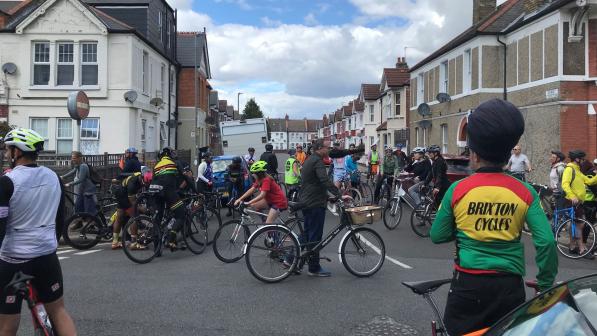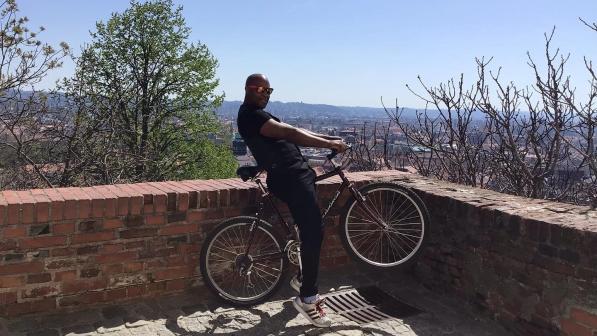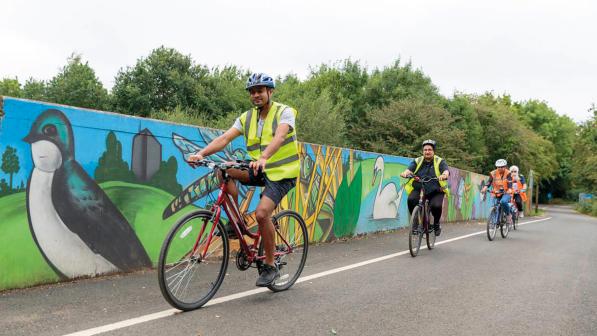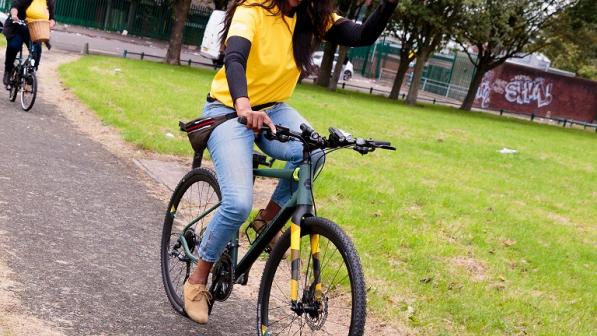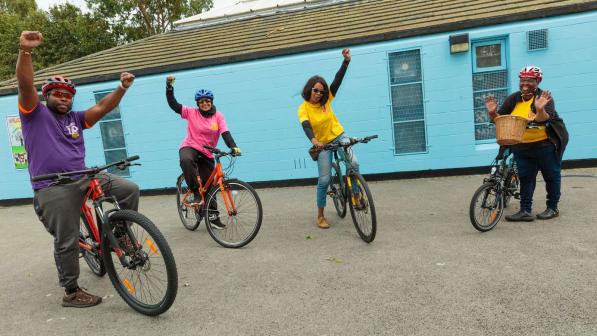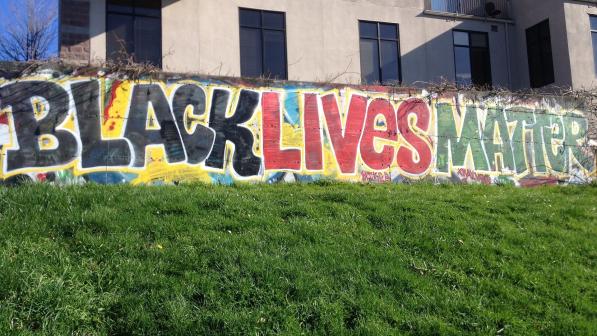Opinion: Time to reflect as Black History Month comes to a close

Shining a spotlight on the present
Black History Month (BHM) is a time to celebrate the contributions black people have made to society in the UK. Black people have been a fundamental part of British history for centuries, but their stories are often untold or hidden, leaving others to make their own assumptions about black culture, heritage and lived experience.
This year, the tragic death of George Floyd, an event which has had a massive global impact, has shone a spotlight on the fundamental problem of structural and institutional racism in society - an untold or too often ignored truth that needs to be heard.
One black square
I’ll never forget waking up to the black tile on 9 May. My Instagram feed, normally full of inspiring bike stories, was replaced with this one black square to show solidarity and support for people of colour (POC) across the world. It was like our cycling world had woken up - a realisation that a whole section of the population was missing from our cycling community and something needed to be done about it. This was a loud scream for change, raising consciousness in every realm of society including that community.
As a person of colour (POC), I think about racism every day and how it impacts on me personally, how I judge myself, how I am judged by others and how hard I must work for people to see beyond the colour of my skin.
Aneela McKenna
At first, this societal ‘awakening’ felt a bit odd to me - was it just a social media gimmick or was it going to have any long-lasting effect? As a person of colour (POC), I think about racism every day and how it impacts on me personally, how I judge myself, how I am judged by others and how hard I must work for people to see beyond the colour of my skin.
It felt like things had changed overnight - what we were afraid to talk about for decades was being questioned in the mainstream: that racism in cycling is well and truly alive at a personal, institutional and structural level. For the first time, we were able to witness the injustices that people of colour face in their everyday lives.

Figuring out what needs to change
I wasn’t sure what to do. I stayed silent for the day, contemplative and reflective, hearing both sides of the story - on the one hand, the commitment for action and on the other, a resistance to change. To be honest, I was overwhelmed by it all, emotional and tearful that others were speaking up about racism as a disease that eats away at us all.
The cycling world was forced to take a good, hard look at itself and was tasked with figuring out what needs to change for it to be an inclusive activity for all. Six months later, and we are still talking about race in cycling. We are trying to get to grips with what the fundamental problems are to create a more level playing field where everyone can participate. The discourse has changed, and we can speak up about an issue that only six months ago many didn't recognise as a problem. Having meaningful conversations is a step forward but it is not enough - all of us, not just those oppressed by race, should be working to achieve equality for POC in the sport.

Three important lessons
For me, there are three important lessons from all this that will help us move away from conversation and towards action:
- Give people a voice;
- Reflect on our own actions; and
- Deal with the resistance.
Give people a voice
Giving people a voice is the most important part of all of this - shining a light on the barriers people face in cycling and what we should be doing to remove these barriers. We can learn so much from sharing our lived experience with one another to help us understand the root causes of inequality and what prevents people from being able to be part of an activity that helps enrich our lives. Creating a platform for POC will help break the silence, and by encouraging more people to speak up, will strengthen the voice to address racism in cycling.
Groups like the Women of Colour Cycling Group, Cycling UK and Ride for Unity are increasing the presence of POC in the mainstream of cycling. I believe that the greater the presence of POC, the more it will become the norm for us to see diversity in the sport and, once and for all, we will stop having conversations about why there is a problem.
Reflect on our own actions
On a personal level, Black Lives Matter (BLM) has made me think more than ever before about challenging injustice in a more active way. It has created a space for me to reflect on my own actions and where I can make a difference, whether that’s through educating myself, engaging with others who are not like me, or taking a stance when I feel I must speak up.

BLM has forced us to question our actions; to take a good look at ourselves and ask ourselves ‘What we can do differently?'. If our only focus is giving black people a presence, we will remain stagnant.
What about our cycling industry - where are the barriers, how can we attract more POC into the industry and sport, and how can we all be better allies to help redistribute and rebalance the power to enable everyone to participate in cycling? We must continue to challenge ourselves and others, using our privileges to actively influence change and make sure everyone’s voices are heard.
Dealing with resistance
The hardest part of dealing with racism is the resistance that comes with any struggle like this. We have seen in our own cycling community people that are defensive; who are blind to the issue; and don’t want things to change.
The extent to which prejudice and discrimination are embedded in British society has been a real wake up call to many in our community.:
“There’s no such thing as racism in cycling.”
“What has the colour of people’s skin got to do with cycling?”
“You’ve lost my following with this race clickbait post.”
Anytime someone speaks up about racism, we hear this reaction, which comes from a position of privilege; what I mean by this is a person who has not experienced racism, yet strongly denies racism exists because they are fortunate enough to never have experienced it personally.
It doesn’t mean that someone has had an easy, privileged upbringing or hasn't earned their success, but it does mean that life can be a lot tougher because of the colour of your skin. Hearing these voices has been hurtful, but to counteract them, we must speak up and challenge such comments. Doing nothing silences the problem. No doubt that backlash will come with this article too, and whilst I know it may hurt, I know I will have influenced a whole lot more people to call out racism when they see it.
This doesn’t always have to be directed at a personal level - what’s more important is that we advocate for change through widening participation in cycling; educating ourselves and others; building leadership and capability; and having diverse role models for the next generation of riders coming through.

So where do we go from here?
Racism is so subtle that we don't even know it exists unless we continue to question the way we do things. Some say this might be a fad that will come to an end soon, but to me it is clear - a silence has been broken and the conversation is still going strong. Awakenings happen because determined people won’t let go of the truth; closed-minded people open their hearts and their heads and open-minded people become advocates, allies and amplifiers.
It's been an intense ride for sure, we’ve had more conversations about race in cycling in the last six months than we have ever had in the last twenty years and we have created a new narrative that will positively influence the future. Hopefully the events of 2020 will change black history for the better. Soon we’ll be able to look back and celebrate the achievements of black people in cycling in general and not just for one month in the year.

How you can help
If you want to be an advocate for change within your cycling club, take a look at Cycling UK’s new volunteer role of Diversity Champion. It’s a valuable resource for a volunteer with a cycling group, with some great tips on how to champion diversity and inclusion within your local cycling community. We can all be influencers: by each of us taking small steps, together we make a huge difference to increasing diversity in cycling.
